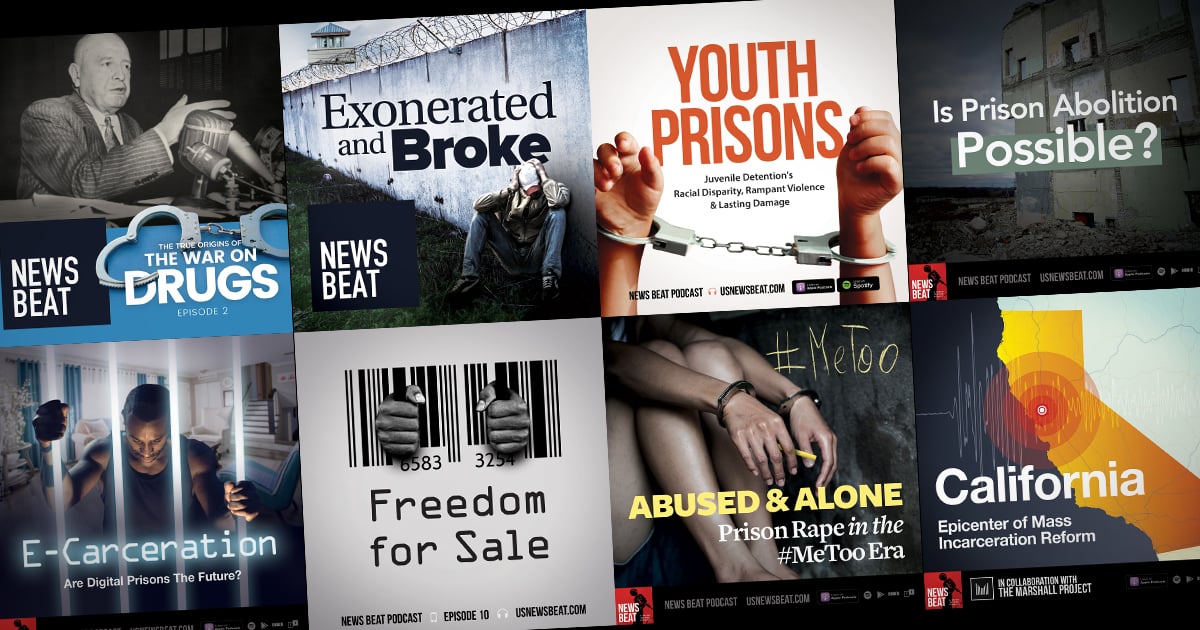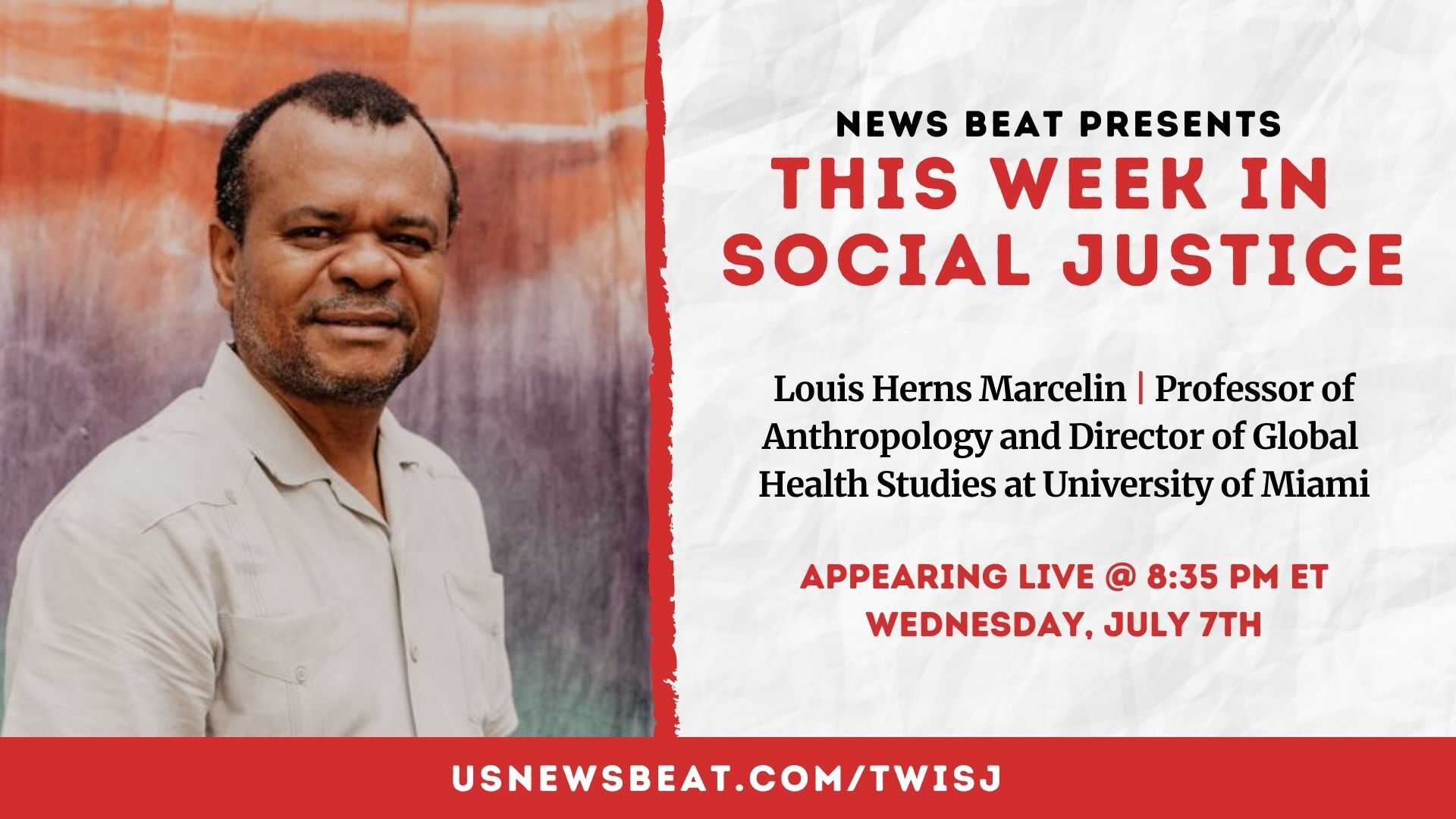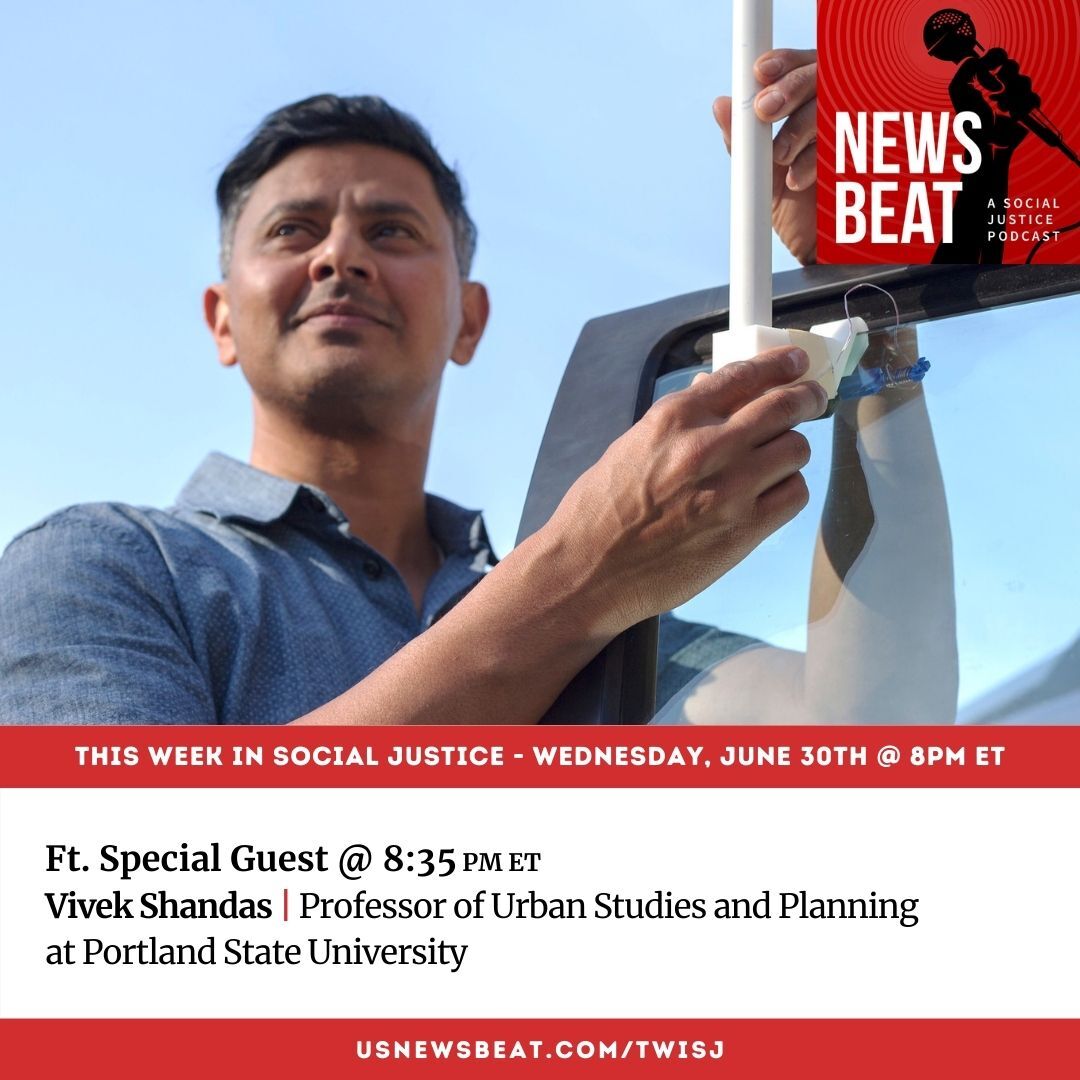
Criminal justice reform has emerged as a pressing issue across the country. Almost all the top-performing presidential hopefuls for the Democratic Party nomination have released their plans to reform America's massive justice system. Even President Donald Trump has gotten into the fold, criticizing former Vice President Joe Biden for his support of the much-maligned 1994 crime bill.
At News Beat podcast, we've made it a priority to examine the myriad aspects of the country's massive criminal justice system, which imprisons more than 2.3 million Americans annually.
Why focus on criminal justice?
While there are many facets of the justice system, perhaps the biggest takeaway is this: America has the highest incarceration rate in the world. This stark reality is largely the result of tough-on-crime policies that have prevailed throughout the last three decades. Among the largest drivers of incarceration: the racialized War on Drugs and other punitive measures adopted in subsequent years, such as mandatory minimum sentences and notorious "three-strike" laws.
Our punitive system does little to keep us safer—and it is separating families and devastating entire communities. If we want real justice in this country, we have to make big, structural changes to reform the criminal justice system. https://t.co/nQYWs4p0vp
— Elizabeth Warren (@ewarren) August 22, 2019
The justice system's carceral apparatus extends far beyond jail and prison cells, however. There are more than 4.5 million people confined to probation or parole. That includes nearly 200,000 forced to wear electronic ankle monitors as a condition of their parole. Not to mention the collateral consequences that undercut rehabilitation efforts: the inability to acquire a job, healthcare, and lack of housing, to name a few.
We also can't forget the more than 400,000 people locked up in local jails mainly because they couldn't afford bail. As you can see, there's a lot here to unpack.
Criminal Justice Podcasts
News Beat has produced several criminal justice-related podcast episodes. Additionally, we've covered peripheral topics that are equally critical to understanding the impact the system has on everyday Americans, such as poverty and oppression.
Below is a list of specific episodes in chronological order of their release. You can find each and every News Beat podcast episode on all major podcast apps, including Apple Podcasts, Spotify, Stitcher, and TuneIn.
Issue: War on Drugs
Episode: The True Origins of the War on Drugs
Currently, more than 400,000 Americans are imprisoned for drug crimes, up from just 40,000 in 1980. While President Richard Nixon is often credited with enforcing the drug war, the origins of this racist policy can be traced back decades earlier.
Issue: Wrongful Convictions
Episode: Exonerated and Broke
Each state in America has its own laws on the books regarding compensation for those wrongfully convicted of a crime. In some, there's no financial relief available, at all. This episode dissects the disparity in compensation laws for the wrongfully convicted.
Issue: Cash Bail
Episode: Freedom For Sale
Cash bail is a staple of the American justice system. Today, there are more than 400,000 people sitting in local jails solely because they were unable to afford bail. The practice ensures that people with means can pay their way out of pre-trial confinement, while those who cannot toil behind bars. At the same time, people who may be innocent, according to advocates, will accept guilty pleas to avoid long periods of imprisonment before trial. We explore the cash bail system and why activists think now is the time to abolish this centuries-old practice.
Issue: Juvenile Detention
Episode: Youth Prisons
Upwards of 50,000 young people are imprisoned daily within the United States, the far majority of them black youth. Currently, a movement is underway to reform youth prisons or abolish them altogether. Many of these institutions are antiquated and lack the rehabilitative services young people require.
Issue: Felony Disenfranchisement
Episode: The Real Voter Fraud
Nationwide, more than 6 million Americans are stripped of their voting rights due to Jim Crow-era felony disenfranchisement laws. These are people who had been convicted of a felony, and as a result, are unable to vote. A historic referendum in Florida last year reformed the Sunshine State's law, effectively restoring voting rights to 1.4 million people. But even that constitutional amendment is being challenged by the Florida Legislature. This is the story of felony disenfranchisement, one man's pursuit of justice, and a Jim Crow-era law that still resonates today.
Issue: Sexual Assault in Jails & Prisons
Episode: Abused & Alone: Prison Rape in the #MeToo Era
According to U.S. government statistics, the number of reported sexual assaults in prisons tripled between 2011 and 2014. The #MeToo movement has ushered in a new era in which survivors are more comfortable to come forward and speak out. But is anyone listening to incarcerated victims?
Issue: Prison Abolition
Episode: Is Prison Abolition Possible?
Prison abolition. Sounds radical, right? Well, decades ago there were serious debates about whether the United States should shutter prisons for a more dignified approach to rehabilitation. This is our guide to the prison abolition movement, which remains very much active.
Issue: Parole, Probation & Electronic Monitoring
Episode: E-Carceration: Are Digital Prisons The Future?
Critics of e-carceration warn the increased use of ankle monitors could be the beginning of a future in which more and more people will be incarcerated inside their homes. Currently, 200,000 are confined to ankle monitors. That represents a 150-percent increase over the last decade. Is this the future of incarceration?
Issue: Criminal Justice Reform
Episode: California: Epicenter of Mass Incarceration Reform
Although California is perceived as a liberal utopia, especially in the Trump era, it hasn't always led the way on criminal justice reform. That may be changing, however. Since a 2011 U.S. Supreme Court-imposed mandate to reduce the state's jail and prison population, Golden State lawmakers and residents have voted for measures to reform sentencing laws, bail, and parole eligibility. This episode is a collaboration with The Marshall Project, a New York City-based nonprofit news organization dedicated to covering the criminal justice system.









